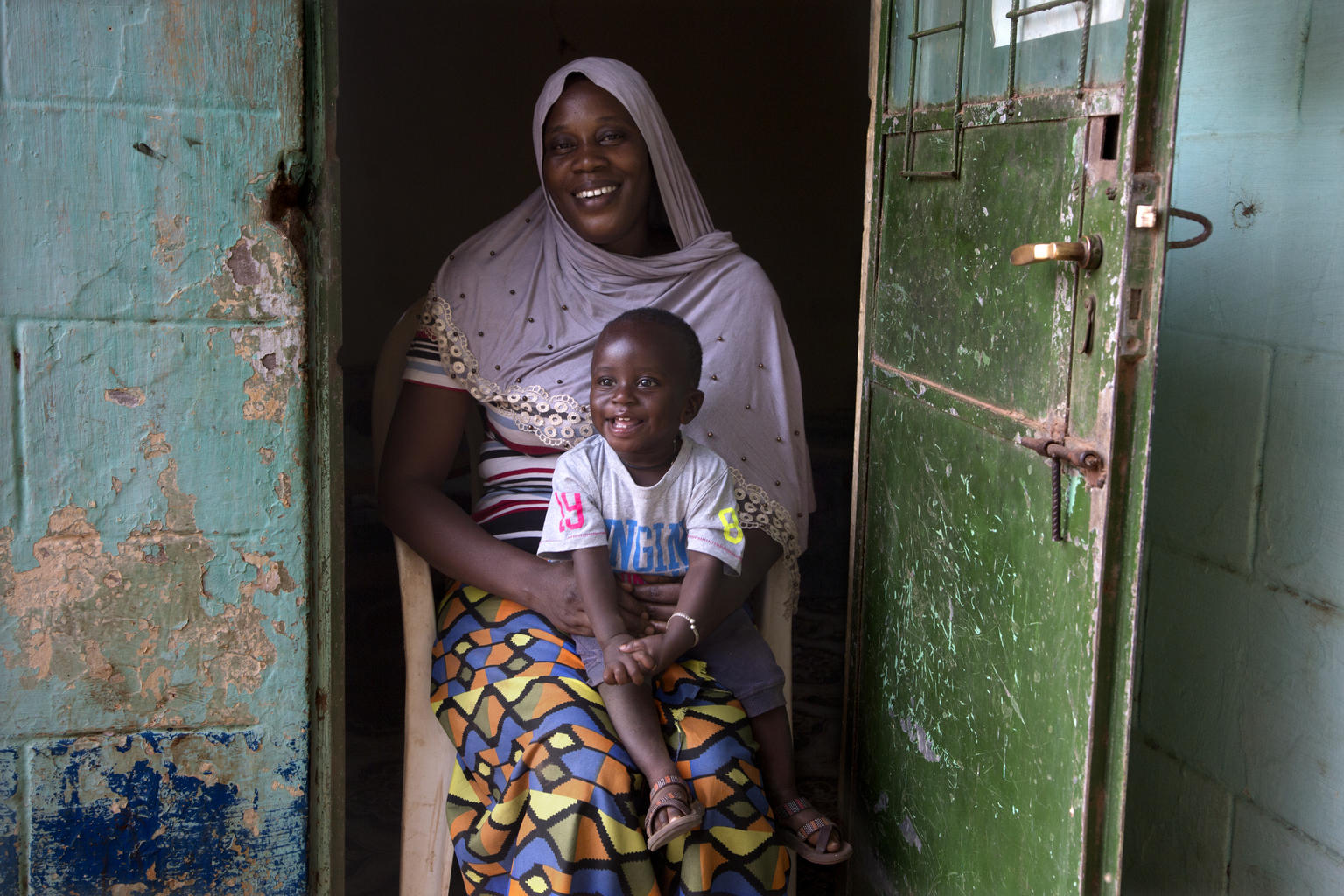https://mailchi.mp/ecdan/parenting
Fatou holds her 11-month-old son in rural Soma, an area in central Gambia. Photo: UNICEF/UNI303475/Engelberth VII
On 28 June, nearly 500 individuals joined the launch of the Global Initiative to Support Parents – and the Call to Action– to push for increased support for parents, caregivers, and families across the world.
At the event, several high-level leaders spoke in support of the initiative, including Dr Tedros Adhanom Ghebreyesus, the Director-General of the World Health Organization; Henrietta H Fore, the Executive Director of UNICEF; Dr Howard Taylor, the Executive Director of the End Violence Partnership; Dr Muhammad Musa, Executive Director of BRAC International; and many others.
The Global Initiative to Support Parents is an inter-agency vision to increase global support for parents and caregivers. It aims to push forward a Call to Action in support of a collective action framework that urges for increased investment in evidence-based parent support initiatives across the globe.
PARENTING IN THE CONTEXT OF COVID-19
At the height of the COVID-19 pandemic, more than 1.5 billion children were out of school. While school closures disrupted children’s learning, routines, and support systems, they also added stress on family members facing increased economic vulnerability – or who were, and continue to be, struggling to work remotely. Such stress can lead to higher rates of abuse and exploitation.
Dr Lucie Cluver, a professor at the universities of Oxford and Cape Town, illustrated that strain on parents, caregivers and families across the world – and highlighted how COVID-19 stressors will take years to fully dissipate. Early reports estimate that it will take up to five years for some countries to become 70 per cent vaccinated, showcasing the need for parent support interventions to be implemented urgently and at scale. She explored the wide range of positive outcomes from parent support interventions which can ripple across communities for up to three decades.
Access Dr Cluver’s presentation in full here.
THE GLOBAL INITIATIVE TO SUPPORT PARENTS
Elizabeth Lule, the Executive Director of the Early Childhood Development Action Network, presented the Global Initiative to Support Parents, its vision and collective action framework, and the related Call to Action. The Global Initiative’s inter-agency vision is built on evidence-based parenting interventions and highlights the importance of working with governments to embed parenting strategies into existing national systems.
Through the Global Initiative to Support Parents, partners are calling for three collective action goals, including:
- Protect children and adolescents, and support families to cope with the multiple stressors, including those resulting from the COVID-19 pandemic.
- Enable parents to nurture their children’s development across the life course, in the context of reduced child-related services and increased parental responsibilities.
- Build the foundation for mainstreaming the uptake and implementation of evidence-based parent and caregiver support initiatives in all countries.
“By achieving these goals, we, as a global community, can overcome setbacks posed by COVID-19 and accelerate progress across a range of SDGs,” said Lule.
SUPPORT FROM ACROSS SECTORS
After the Global Initiative to Support Parents was unveiled, multiple high-level leaders spoke in support of its ambition to help caregivers and, as a result, protect children. Dr Ghebreyesus, for example, spoke of the World Health Organization’s commitment to the vision, and how they are supporting countries in their efforts to strengthen parenting services.
“The COVID-19 pandemic has underscored the pivotal role that parents and caregivers play in the health of children and adolescents,” said Dr Ghebreyesus. “With many health and social systems badly overstretched, we must come together to support parents and caregivers.”
Soon after, Henrietta Fore did the same, noting the importance of country-level scale up and innovation in response to COVID-19.
“Parenting support programmes work,” said Fore. “They can break inter-generational patterns of abuse and neglect in the lives of children while contributing to optimal development outcomes. As we reimagine a future for every child, we also need to reimagine how we support parents in their number one job: nurturing and caring for their children.”
Support was also voiced by Dr Howard Taylor, who mentioned the huge impact the Global Initiative to Support Parents could have on children, families and communities across the world.
“The multiple partners already involved are just the beginning of a coalition that no one can ignore: a new collaboration with a mutual interest in evidence-based interventions that can support parents and caregivers and thereby have multiple positive impacts – at scale – for children,” said Dr Taylor. “We now have an opportunity to work together and turn this shared vision into a reality.”
Dr Taylor urged the audience to sign the Call to Action – and to join the global movement to support parents and caregivers through this collective effort.
Support was also voiced by Sarah Bouchie, the Chief Impact Officer of the LEGO Foundation; Gretchen Bachman, Senior Advisor, Orphans and Vulnerable Children, USAID; Stefania Giannini, the Assistant-Director General for Education at UNESCO; Elizabeth Saenz, Liaison Officer at the UNODC; Dr Muhammad Musa, Executive Director at BRAC International; and Dr Joan Lombardi, Senior Scholar at the Center for Child and Human Development at Georgetown University. Each speaker highlighted commitment to this cause from their respective sector, spotlighting programmes their organisations and institutions have implemented to adapt to the changing COVID-19 context.
GROWING THE MOVEMENT
To join the movement to support parents, caregivers and families, please read the full inter-agency vision here, and sign the related Call to Action as an organization or an individual. The Call to Action will remain open from 28 June to 28 August 2021.
